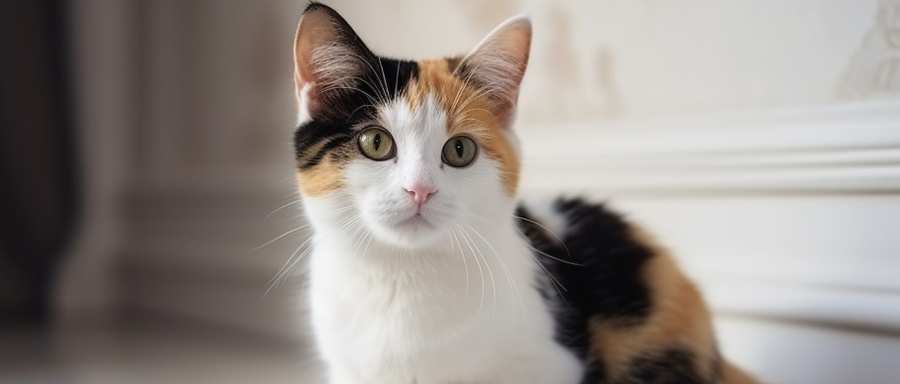Pears are not toxic to cats, but they should be given in moderation to avoid digestive issues.
Cats are fascinating creatures, each with their own quirks and personalities. As a cat owner, I often find myself wondering about what foods are safe for my furry friends. One question that frequently comes up is, “Are pears toxic to cats?” This inquiry is essential for any cat lover who wants to ensure their pet’s health and well-being.
Pears are juicy, sweet fruits that many people enjoy. They’re packed with vitamins and minerals, making them a healthy snack for humans. However, when it comes to our feline companions, the rules change a bit. While pears aren’t considered toxic to cats, there are several factors to consider regarding their safety and suitability as a treat.
The Nutritional Profile of Pears
Pears belong to the Pyrus genus and are known for their unique flavor and texture. They come in various types, including Bartlett, Bosc, and Anjou. Each variety boasts its own distinct taste and nutritional benefits. Here’s a quick look at the nutritional profile of pears:
| Nutrient | Amount per 100g |
|---|---|
| Calories | 57 |
| Carbohydrates | 15g |
| Fiber | 3g |
| Sugars | 10g |
| Vitamin C | 4.3mg |
| Vitamin K | 4.3mcg |
| Potassium | 116mg |
| Water Content | 84% |
Pears are rich in dietary fiber, which can aid digestion in humans. They also contain vitamins C and K, both of which contribute to overall health. However, while these nutrients benefit us humans, they don’t necessarily translate into benefits for cats.
The Digestive System of Cats
Understanding a cat’s digestive system is crucial when considering any new food item. Cats are obligate carnivores, meaning their diet primarily consists of meat. Their digestive systems have evolved to process protein efficiently while having limited ability to digest carbohydrates.
Unlike humans who can enjoy a variety of fruits and vegetables without issue, cats may struggle with foods that aren’t part of their natural diet. This doesn’t mean that all fruits are harmful; it simply means moderation is key.
The Risks of Feeding Pears to Cats
While pears aren’t toxic to cats, there are risks involved in feeding them this fruit:
1. Digestive Upset: Cats may experience gastrointestinal issues such as diarrhea or vomiting if they consume too much fruit.
2. Choking Hazard: The seeds in pears contain cyanogenic compounds; while a few seeds won’t cause harm, it’s best not to take chances by allowing your cat access to whole pears.
3. Sugar Content: Pears have natural sugars that can lead to weight gain if consumed excessively by sedentary indoor cats.
4. Allergic Reactions: Some cats may have allergies or sensitivities to certain foods, including fruits like pears.
Given these considerations, it’s wise to approach feeding pears with caution.
How to Safely Introduce Pears to Your Cat’s Diet?
If deciding to share a pear with your feline companion seems appropriate after weighing the risks and benefits, here’s how I would go about it:
1. Start Small: Begin with just a tiny piece of pear flesh; monitor your cat for any adverse reactions over the next 24 hours.
2. Remove Seeds and Skin: Always remove the seeds as well as the skin before offering pear pieces since they can be difficult for cats to digest.
3. Observe Behavior: Watch your cat’s behavior after introducing this new treat; if there’s any sign of discomfort or unusual behavior, discontinue feeding immediately.
4. Limit Frequency: Treat pears as an occasional snack rather than a regular part of your cat’s diet.
5. Consult Your Vet: If uncertainty persists about feeding certain foods like pears or other fruits, consulting with a veterinarian can provide tailored advice based on your cat’s health needs.
The Benefits of Offering Fruits Like Pears Sparingly
Even though pears should be offered sparingly due to potential risks associated with feline digestion and health concerns related to high sugar content in fruits, there are some potential benefits worth mentioning:
- Hydration: Since pears consist mostly of water (about 84%), they can help keep your cat hydrated during hot weather.
- Variety in Diet: Occasionally introducing new flavors can stimulate your cat’s interest in food and provide mental enrichment.
- Nutritional Boost: Small amounts of fiber from fruits like pears might aid digestion if given appropriately alongside a balanced diet primarily composed of animal protein.
While these benefits exist, they come with significant caveats that must be respected when considering whether or not to share pears or other fruits with cats.
What Other Fruits Can Cats Eat?
Cats may enjoy various fruits aside from pears—though again moderation is key! Here’s a list of some safe options:
- Blueberries: Rich in antioxidants and low in calories.
- Watermelon: Hydrating and refreshing during hot days; ensure seeds are removed.
- Bananas: In small amounts; high sugar content warrants caution.
- Strawberries: Packed with vitamin C but also sugary—offer occasionally.
- Cantaloupe: Many cats seem attracted to this sweet melon; again moderation is crucial!
Each fruit has its own unique properties that might appeal differently depending on individual feline preferences.
Conclusion – Are Pears Toxic To Cats?
Ultimately answering the question “Are pears toxic to cats?” leads us down an informative path filled with considerations regarding feline health and nutrition. While pears themselves aren’t toxic per se—caution must prevail when introducing any non-meat food into an obligate carnivore’s diet!
Observing personal reactions after offering tiny morsels alongside maintaining regular vet consultations ensures optimal health for our beloved furry companions while allowing some occasional fruity fun!

